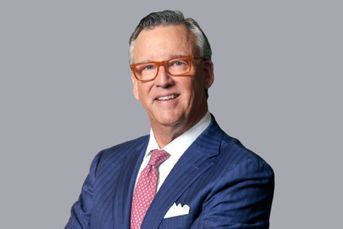Carson Group partners with insurance marketing firm

The deal with Financial Independence Group gives all of Carson’s advisers access to the same list of company-vetted products, including annuities, life insurance, long-term care insurance and disability insurance.
Carson Group’s roster of more than 300 advisers now have an easier way to recommend insurance products, through a partnership the company announced today with an insurance marketing organization.
That arrangement with Financial Independence Group is potentially the biggest partnership to date between a wealth advisory firm and an insurance distributor, the companies stated.
The deal gives all of Carson’s advisers access to the same list of company-vetted products, including annuities, life insurance, long-term care insurance and disability insurance, which are provided by about 70 different insurers, according to the announcement.
That list includes both commission-based and fee-based products. About two-thirds of Carson Group offices are dually registered, said Jamie Hopkins, who was recently appointed as the firm’s managing partner of wealth solutions.
“To really be a fiduciary adviser, you have to have a great insurance solution, too,” Hopkins said. “I run into a lot of CFPs who say they don’t do this. And to me, that’s a violation of their fiduciary duty.”
Offering insurance-product recommendations is certainly not something new for the RIA’s offices, and many of them have existing relationships with a variety of different insurance distributors. Carson Group advisers can keep those relationships, but the arrangement with Financial Independence Group is preferable, Hopkins said.
“There really [wasn’t] something out there for the market that can serve that whole view of how advisers operate,” he said. “We’re going to prove out that this is the best solution.”
For fee-based advisers, Financial Independence Group gives access to fee-based annuities, or the company will write contracts for traditional products so that advisers can still make recommendations.
“The reality is that a lot of advisers and clients can run into problems in the insurance space,” Hopkins said. “We’re trying to remove a lot of that friction.”
Carson advisers “are going to be able to have this menu of products that they’ve never had before,” said Jim Cooper, Financial Independence Group co-CEO.
About 70% of Financial Independence Group’s business comes from securities-licensed reps, Cooper said.
The demand for insurance products from that group is growing, particularly as more wealth advisers acknowledge the necessity for recommendations in that area as part of comprehensive financial planning, he said. “There are a lot of firms out there that haven’t taken a look at insurance in 10 to 15 years.”
In 2019, Envestnet launched its Insurance Exchange in partnership with Fiduciary Exchange, an arrangement that allows advisers to add annuities to financial plans, even if they are not licensed to sell insurance products. That deal includes access to annuities through multiple carriers, including Allianz Life, Brighthouse Financial, Global Atlantic, Jackson National, Nationwide and Prudential.
Data show that more full-service financial planning firms have begun including insurance over the past several years. Between 2015 and 2017, an average of 13% of such companies recommended life insurance or health insurance, and 25% recommended long-term care insurance, according to figures from consumer-research firm Hearts & Wallets. Those numbers increased dramatically since, with an average of 50% for life insurance and 67% for both health and long-term care insurance between 2018 and 2021.
A Hearts & Wallets survey in 2019 of nearly 5,500 U.S. households that use a paid investment professional showed that 45% of such clients said they found it difficult to determine the right levels of insurance for them.
“Insurance is a very important part of overall wealth management,” said Chuck Failla, principal of Sovereign Financial Group.
However, many “purist” advisers historically avoided insurance because of its tendency to be oversold and not wanting to “‘dirty’ themselves with commissions,” Failla said.
His firm became an RIA over two years ago and works with Palladium Group, part of Ash Brokerage, to handle insurance transactions. That service allows fee-based advisers to make annuities recommendations regardless of the products’ compensation design, he noted.
If the product includes a commission, it is collected by Palladium, not by the recommending adviser, he said.
“You should be getting paid for advice, not a product” if working as a fiduciary, Failla said. “That helps clean that murkiness between the insurance world and the advisory world.”
Learn more about reprints and licensing for this article.








